What Are the Best Guinea Pig Treats? A Heartwarming Guide
Discover the best treats guaranteed to make your happy and healthy guinea pigs jump with joy. You won't want to miss this guide. Enjoy!

Key Takeaways:
- Guinea pigs thrive on a balanced diet that includes specific treats.
- Not all treats are created equal; some can cause health issues.
- Understanding your guinea pig's dietary needs ensures a happy, healthy pet.
Introduction
Guinea pigs, with their adorable squeaks and curious nature, are cherished pets in many households. But, just like us, they enjoy a little something extra in their diet. The question is, what are the best guinea pig treats? This guide will walk you through the best options to keep your furry friend happy and healthy.
The Importance of a Balanced Diet
Guinea pigs have specific dietary needs that must be met to ensure their well-being. A guinea pig's diet should primarily consist of high-quality guinea pig pellets, fresh vegetables, and an unlimited supply of timothy hay, forming a balanced daily diet. These components provide the essential nutrients, fiber, and vitamin C that guinea pigs require. Guinea pigs cannot produce their own vitamin C and must obtain it through their diet.
However, treats can be a delightful addition to their diet when given in moderation. It’s crucial to choose treats that complement their nutritional needs rather than degrade quickly or add empty calories. This ensures that your guinea pig remains healthy and avoids common health issues like obesity and bladder stones.
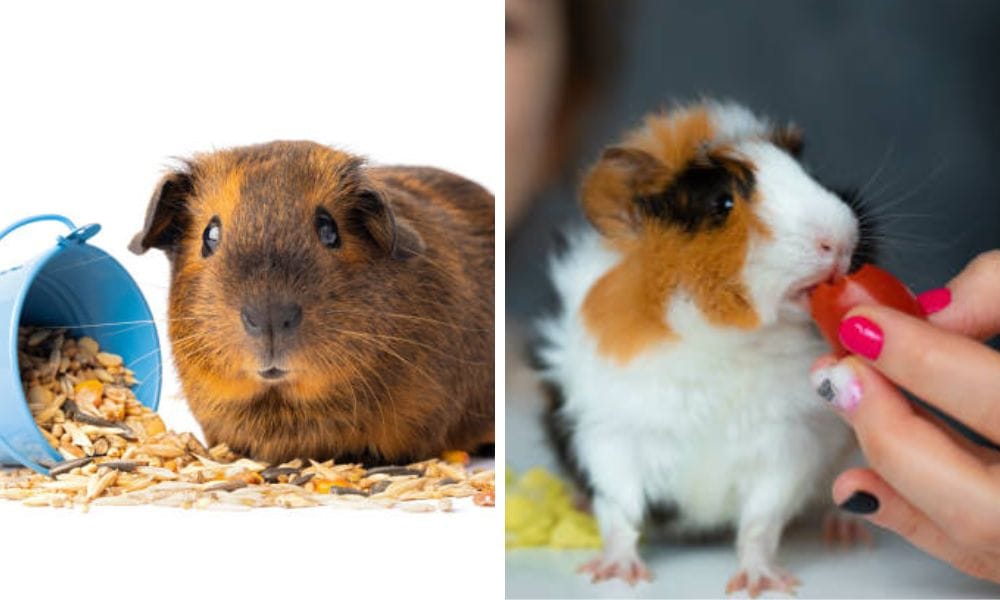
Fresh Vegetables: A Nutritious Delight
Fresh vegetables are a fantastic treat for guinea pigs. Many guinea pigs enjoy a variety of fresh vegetables in their diet. They are packed with vitamins and minerals that support overall health. Some excellent options include bell peppers, which are rich in vitamin C, and leafy greens like kale and spinach. These vegetables provide additional vitamin C, which is vital since guinea pigs cannot produce this vitamin on their own.
However, it’s essential to introduce new vegetables gradually to avoid digestive upset. Start with small amounts and observe how your guinea pig reacts. Avoid vegetables high in calcium, such as spinach and parsley, as excessive calcium can lead to bladder stones.
Fruits: Sweet and Occasional Treats
Fruits can be a delicious treat for guinea pigs, but they should be given sparingly due to their high sugar content. Small pieces of apple, banana, and berries can be offered as an occasional treat. These fruits provide a burst of flavor and essential vitamins, but too much can lead to obesity and diarrhea.
When offering fruits, always remove any seeds or pits, as they can be harmful to guinea pigs. Additionally, ensure that the fruits are fresh and free from pesticides. Organic options are ideal to avoid exposing your pet to harmful chemicals.
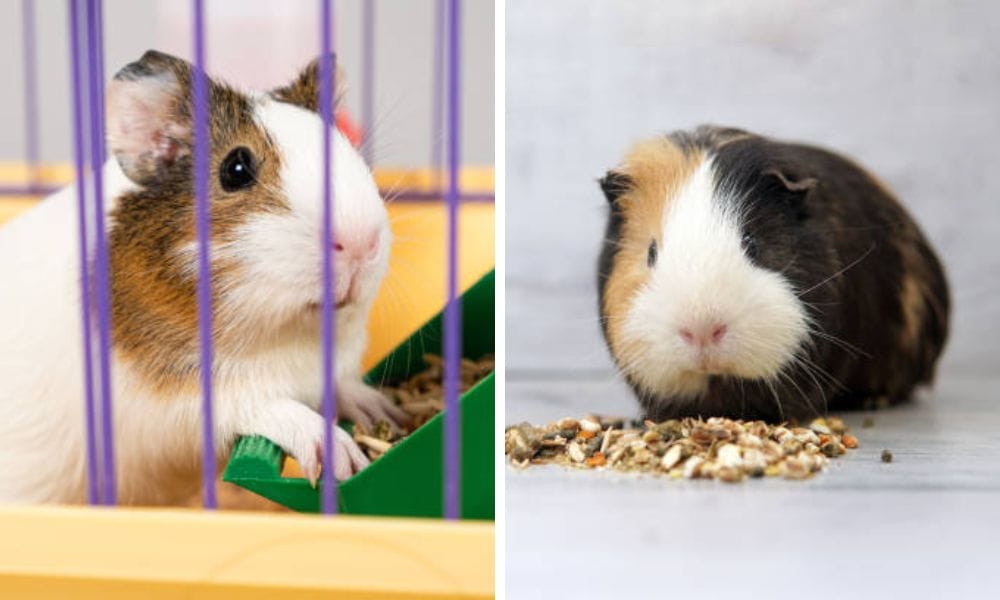
Timothy Hay: The Staple Treat
Grass hay, such as timothy hay, is not just a staple in a guinea pig’s diet; it can also be a treat. High-quality grass hay provides essential fiber that aids in digestion and helps wear down their continuously growing teeth. Offering different cuts of timothy hay can add variety and keep your guinea pig engaged.
You can also find timothy hay-based treats that are compressed into fun shapes. These treats combine the benefits of hay with the excitement of a new texture, making them a hit with most guinea pigs. A diet high in fresh hay and plenty of fresh water are paramount to preventing urinary issues.
Dried Fruits and Vegetables: Convenient and Tasty
Dried fruits and vegetables can be a convenient treat option, but they should be given with caution. While they are easy to store and have a long shelf life, they can be high in sugar and calories. Dried apple slices, carrot chips, and pea flakes are popular choices, but moderation is key.
Always check the ingredients to ensure there are no added sugars or preservatives. These additives can be harmful to guinea pigs and lead to health issues. Opt for human-grade dried fruits and vegetables to ensure the highest quality.
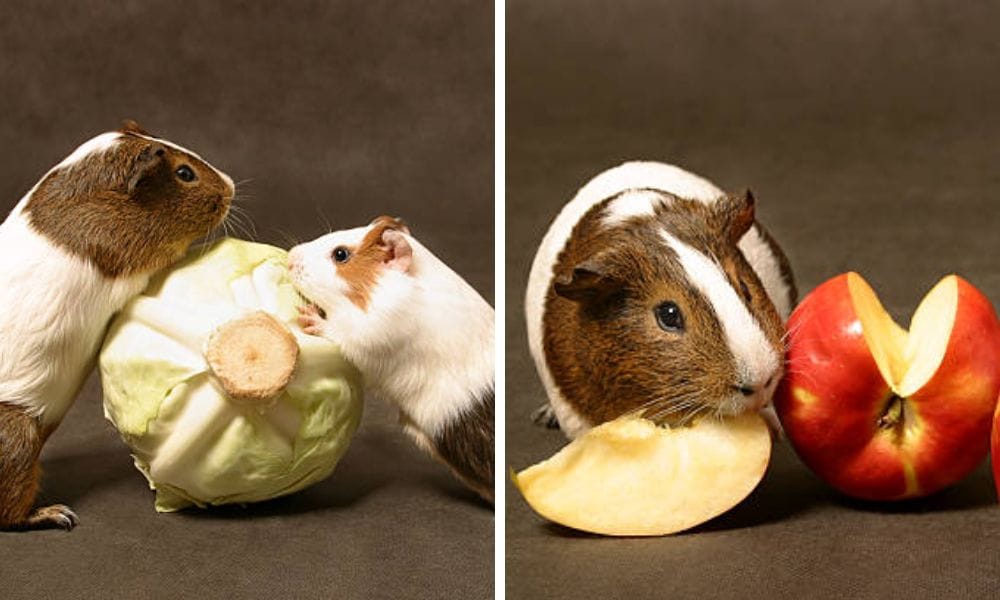
Commercial Guinea Pig Treats: A Mixed Bag
The pet store shelves are lined with various commercial guinea pig treats, but not all are created equal. Some treats are packed with sugar, artificial colors, and preservatives that can be detrimental to your guinea pig's health. It's essential to read the labels and choose treats made from natural ingredients.
Look for treats that are specifically formulated for guinea pigs and other small animals. These treats often contain beneficial ingredients like timothy hay, dried fruits, and vegetables. Avoid treats designed for rabbits or other pets, as their nutritional needs differ.
Homemade Treats: A Personal Touch
Making homemade treats for your guinea pig can be a fun and rewarding experience. You can control the ingredients and ensure that they are healthy and nutritious. Simple recipes using oats, mashed banana, and grated carrots can be baked into small, bite-sized treats.
Homemade treats allow you to get creative and tailor the flavors to your guinea pig's preferences. Just remember to introduce new treats gradually and monitor your pet for any adverse reactions.
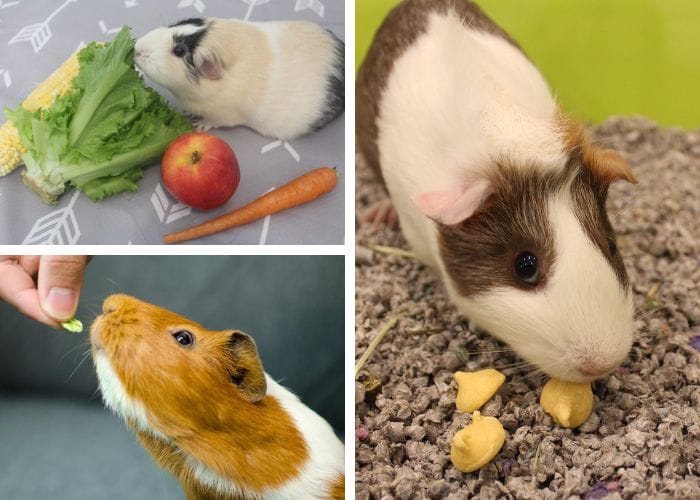
Avoiding Harmful Foods
While there are many delicious treats that guinea pigs can enjoy, there are also foods that should be avoided. Foods high in sugar, fat, and calcium can lead to health problems. Chocolate, dairy products, and seeds are off-limits, as they can cause serious health issues.
Additionally, some vegetables like cabbage and broccoli can cause gas and bloating. It's best to offer these in small amounts and observe how your guinea pig reacts. Always consult with a veterinarian if you're unsure about a particular food.
Monitoring Your Guinea Pig's Health
Regularly monitoring your guinea pig's health is crucial when introducing new treats. Keep an eye on their weight, coat condition, and overall behavior. If you notice any changes, such as lethargy or digestive issues, it may be time to reassess their diet.
Consulting with a veterinarian who specializes in small animals can provide valuable insights into your guinea pig's dietary needs. They can recommend specific treats and supplements to ensure your pet remains healthy and happy.
FAQ
What fruits can guinea pigs eat?
Guinea pigs can enjoy small amounts of fruits like apples, bananas, and berries. These should be given sparingly due to their high sugar content. Always remove seeds and pits before offering fruits to your guinea pig.
Can guinea pigs eat dried fruits?
Yes, guinea pigs can eat dried fruits, but they should be given in moderation. Dried fruits can be high in sugar and calories, so it's essential to choose options without added sugars or preservatives.
How often should I give my guinea pig treats?
Treats should be given in moderation, no more than a few times a week. The primary diet should consist of high-quality guinea pig pellets, fresh vegetables, and unlimited timothy hay. Treats should complement their diet, not replace it.
Fresh Fruits and Vegetables
Your guinea pig needs fresh fruits and vegetables in their diet. These are healthy snacks that also give them the necessary vitamins and minerals they need. Some excellent options are apples, blueberries, carrots, celery, cucumbers, and lettuce. Make sure to cut them into bite-size pieces and wash them thoroughly before feeding them to your furry friend.
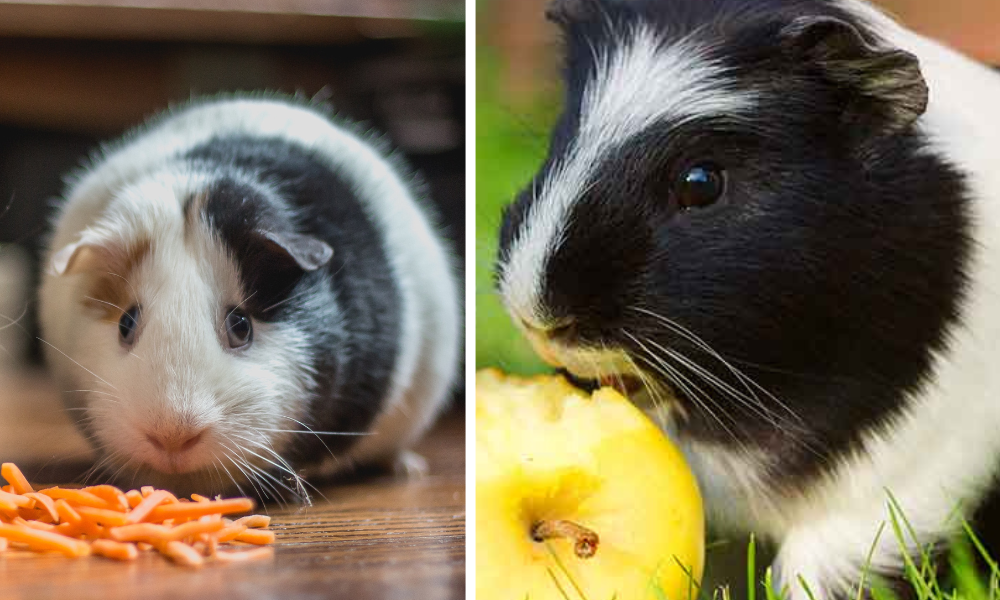
Timothy Hay
Hay is very important for guinea pigs. It helps keep their digestive system healthy and prevents them from becoming overweight. Hay also helps wear down their constantly growing teeth, which is a necessary part of a guinea pig's diet. Timothy hay and alfalfa hay are both great choices. If you want to know more about types of hays you can read our blog here.
Treats
Finally, let's talk about treats! Just like us, guinea pigs love to indulge in something sweet. Some excellent options are yogurt drops, dried fruit, and homemade baked goods. However, you should limit your guinea pig's treat intake to avoid them gaining weight. Treats should only be given in small portions occasionally.
Giving your guinea pig the occasional treat is a great way to make them happy. Some great treat options include small pieces of apple, carrots, or banana. You can also buy commercially produced treats, but make sure to read the labels carefully and avoid treats that are high in sugar or fat.
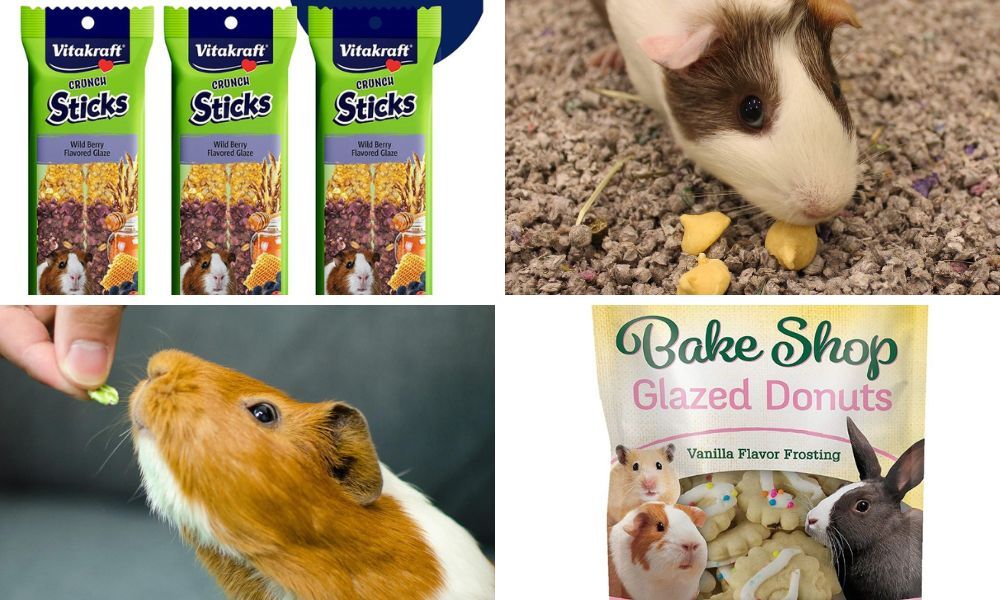
Choosing the best guinea pig treats involves understanding their dietary needs and selecting options that complement their nutrition. Fresh vegetables, fruits, timothy hay, and occasional dried treats can add variety and excitement to their diet. Always prioritize natural, high-quality ingredients and consult with a veterinarian to ensure your guinea pig's health and well-being.
At the end...
Guinea pigs, like any other pet, deserve the best care and attention. They require a well-balanced diet to ensure their optimal health and happiness. While selecting the best treats for your guinea pig, make sure to read the labels carefully and avoid treats that are high in sugar or fat. Don't forget that guinea pigs also love the company of humans, so don’t forget to give them lots of love, cuddles, and attention!
In conclusion, guinea pigs are lovely creatures that deserve the best. Providing them with healthy treats is an excellent way to show them love and care. In this blog, we have reviewed some of the best treats for guinea pigs, including fresh fruits and vegetables, Timothy hay, herbs, pellets, and treats. Always remember to do your research and consult your veterinarian about any concerns you might have. With the right diet and snacks, your guinea pig will live a happy and healthy life.
Looking for the best treats you can offer to your guinea pigs? We have done all the research for you and put together our list of best 5 treats for guinea pigs you can buy today! Tap the button below to see the list now!

